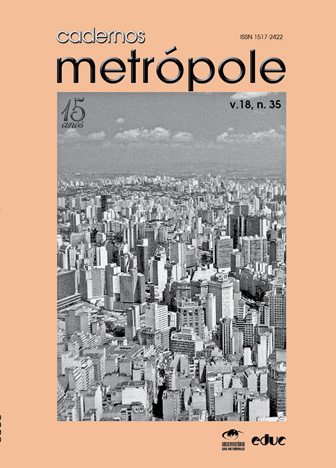Por que o Programa Minha Casa Minha Vida só poderia acontecer em um governo petista?
Mots-clés :
política habitacional, reforma urbana, mercado imobiliário, Programa Minha Casa Minha Vida, coordenação de interessesRésumé
No período de gestão do Partido dos Trabalhadores (PT) no governo federal, configurou-se uma dupla agenda para a política habitacional: a primeira ligada à plataforma de reforma urbana, com previsão de descentralização e gestão participativa, e a segunda consubstanciada na premissa de reestruturação do setor imobiliário, estruturada em uma política exclusiva de provisão habitacional com promoção privada e financiamento público. Esse modelo de governança garantiu a distribuição de benefícios a ambas coalizões que representavam essas agendas, além de ter legitimado a política habitacional na agenda pública. No presente trabalho, analisou-se a trajetória do principal programa habitacional desenvolvido na época (MCMV), discutindo suas implicações para o direito à moradia e o papel dos atores do setor habitacional neste contexto.Statistiques
Chargement des statistiques…
Téléchargements
Publié-e
2016-03-12
Comment citer
Klintowitz, D. (2016). Por que o Programa Minha Casa Minha Vida só poderia acontecer em um governo petista?. Cadernos Metrópole, 18(35), 165–190. Consulté à l’adresse https://revistas.pucsp.br/index.php/metropole/article/view/2236-9996.2016-3508
Numéro
Rubrique
Artigos
Licence
A revista não tem condições de pagar direitos autorais nem de distribuir separatas.
O Instrumento Particular de Autorização e Cessão de Direitos Autorais, datado e assinado pelo(s) autor(es), deve ser transferido no passo 4 da submissão (Transferência de Documentos Suplementares). Em caso de dúvida consulte o Manual de Submissão pelo Autor.
O conteúdo do texto é de responsabilidade do(s) autor(es).


